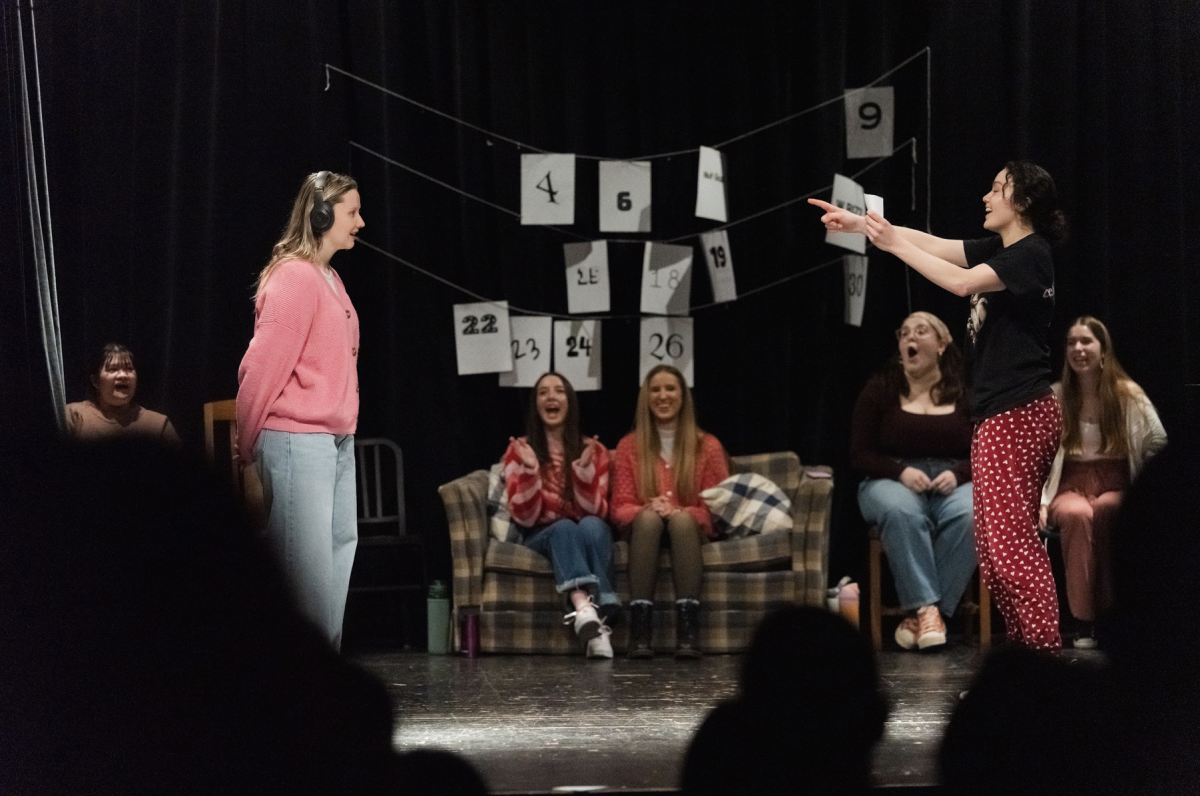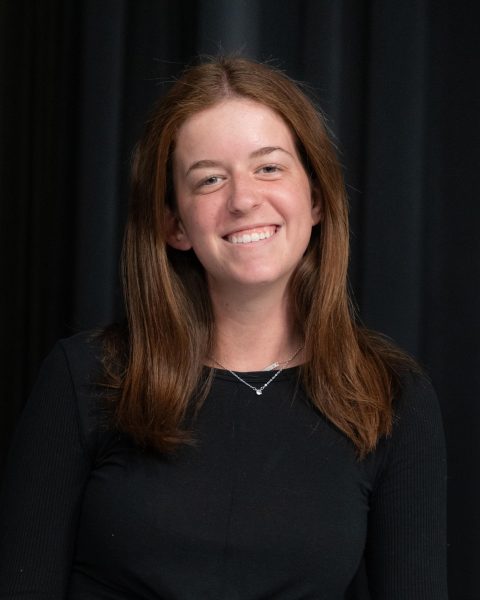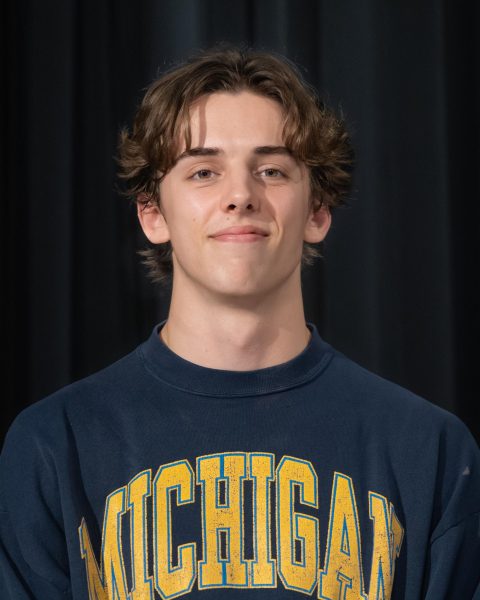“Curtain… go!” was heard throughout Straz Theatre Feb. 16 and 17, as The Comet Project, a student-led ensemble group, hosted their first show of the semester: “A Wacky Walk Down the Driveway.”
Darby O’Shea, co-director and junior in the College of Health Sciences, said they write and create neo-futurism plays — actors only play themselves, creating work based on personal experiences.
The Comet Project was founded in 2021 by Lily Haugen, senior in the College of Education, and Cece Starks, senior in the College of Communication. The two based it off of the Chicago Neo-Futurists — an experimental theater troupe founded by Greg Allen in 1988.
O’Shea said the original Neo-Futurists had a play called “Too Much Light Makes the Baby Go Blind,” and her first year they made a bunch of names based off of their other shows. For this particular show, they decided to pick the name “A Wacky Walk Down the Driveway,” which, O’Shea said, doesn’t relate to the type of plays the ensemble creates.
“We write the plays based on honesty and brevity — meaning that we are always writing about ourselves, not characters,” O’Shea said.
As audience members gathered into the theatre, the performance began with O’Shea starting a timer for one hour. Once the timer started, the crowd began shouting numbers one through 30 — referencing the name of the play the audience had received on a piece of paper and wanted to be performed next.
Whichever number the ensemble heard the loudest they grabbed that number off the wall, read the play name aloud, and the audience yelled “go!” to which they had one minute to set the stage and begin that play. Once the play ended, the ensemble yelled “Curtain,” and the process continued.
Each of the plays ranged from one to three minutes long. The Comet Project uses the phrase, “30 plays in 60 minutes,” meaning they will try to finish all 30 plays in under 60 minutes; but once the timer ends — or they complete all the plays — they will end their show.
Ensemble member and junior in the College of Arts & Sciences, Mia Figueroa, said each member of the ensemble writes plays that are rooted from experiences, and those can be funny or serious and even include audience participation.
“It is very different from when you would go see a typical show,” Figueroa said. “The audience plays a much more active role. They are encouraged to be loud, laugh, clap and just make sounds.”
When preparing for their show, O’Shea said they have four weeks of preparation which includes writing nights, pitch nights, a week of tech and usually two weeks of blocking.
“During pitch night, we pitch the plays that we want to have during the show,” O’Shea said. “We try to split the show pretty evenly, so that everyone is able to get their plays in multiple times.”
Each of the individual plays are written, directed and blocked by the specific ensemble member. In order to become a part of the ensemble you have to audition.
“Once you sign up for an audition slot, you go through the stages. The first stage is that you write two contrasting pieces, perform one of those pieces and come back for a group callback — where everyone who auditions is called back and questioned for two minutes to learn more about each other,” O’Shea said.
The group callback was something that Figueroa said was something was super unique to her audition process.
“It makes it a little more interesting and fun to have a conversation with the ensemble before you potentially fully become a part of the group,” Figueroa said. “Because the project is so personal, since we are talking about our lives, it’s so important that we are comfortable and work well together.”
As the timer on the clock began to approach the end, the ensemble members finished their last play just in time, achieving “30 plays in 60 minutes.” Audience member Claire Ruschak, a first-year in the College of Communication, said her favorite part of the show is how interactive it is.
“I think it is such an enjoyable event that is super funny, and allows me to come and support my friends,” Ruschak said. “I came last semester and I really wanted to come back, because I really loved the audience participation and the unique ability to actually be a part of the performance.”
This story was written by Sophie Goldstein. She can be reached at [email protected].




